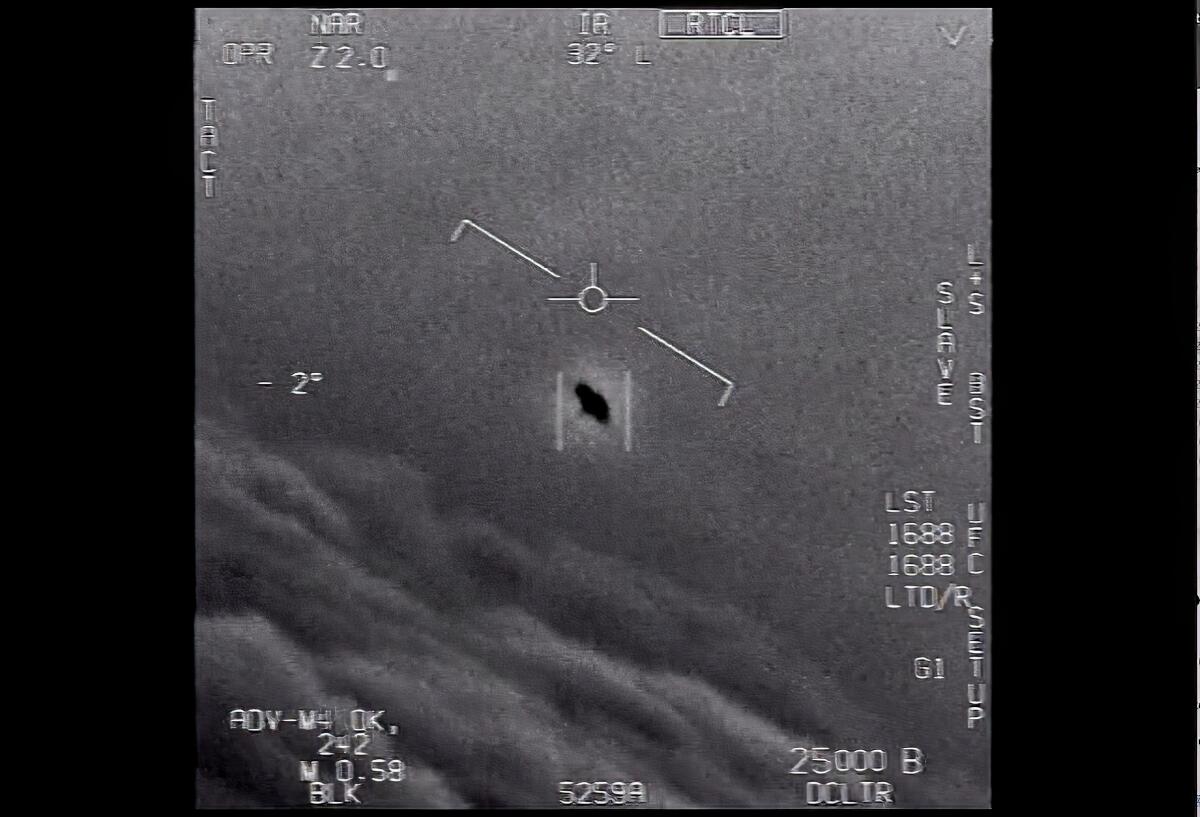Editorial: If there are aliens in those UFOs, they must not like us

What are we, interplanetary social rejects? If E.T. or his kind come for a visit, they never seem to want to talk to us humans. Earth might be the place that the galaxy wants to visit for its natural beauty but not for its people.
A much-anticipated Pentagon report on UFOs concludes … well, not a lot. It reportedly will say that UFO sightings by credible witnesses, including military pilots and ship crews, are of unknown origin.
They’re not cutting-edge American military hardware, the Pentagon concludes, according to a report by the New York Times. But what they are remains unknown or at least unsaid. Are they made of extraterrestrial hardware? Or are they optical illusions of sun, sky and other natural factors? Or tricks that cameras can play on us? These latter two are why the trendier term for UFO is Unidentified Aerial Phenomena or UAP, because they might not be objects at all. Or, for that matter, flying.
Most of the report will be unclassified, meaning the public will have access when it is released Friday. It’s good that the government is at least acknowledging the existence of UAPs — a once-taboo subject.
But part of it will be kept under wraps, which already is leading to speculation that the military is doing what UFO believers have always thought — hiding its knowledge of alien life from the American public and the world.
After all, videos taken by some military personnel appear to show objects with extraordinary abilities to accelerate, spin, speed, change course with incredible deftness and stay in the air seemingly for days.
But with all these amazing sightings, it still seems as though the biggest argument against extraterrestrial visitation is that these intelligent beings somewhere out there never want to get in touch with us. All that travel and no sushi or fried chicken or meeting Uncle Joe.
The other possible explanation being floated out there is that China or Russia or both have developed hypersonic technology far beyond what the United States has managed. Hypersonic aircraft are capable of traveling at five times the speed of sound and following highly erratic flight paths. Both foreign powers have spent heavily on that technology.
Along with optical tricks, that explanation makes more sense than the idea that untold numbers of travelers from light-years away come all the way here without attempting some kind of contact. We fantasize about such communication, whether it’s with the kindly health-sharing aliens of “Cocoon,” or the 9-foot humanoids in the classic “Twilight Zone” episode “To Serve Man,” who, while bringing supposed humanitarian gifts, also possess a cookbook with the same title as the episode.
If there are real-life extraterrestrials in any of those mysterious phenomena that pilots have observed, they don’t even venture a “hello” to us. Not a confirmed one, anyway.
We shouldn’t completely banish the thought that inter-galactic vehicles or life forms might drop by. On the other hand, if they do exist we probably won’t learn about them from a Pentagon task force heavy on intelligence officers and light on scientists. If nothing else, people tend to find what they’re looking for. The Pentagon’s people are valuable experts on military technology, but by nature, they scan the skies and waters for foreign threats, not interplanetary visitation. At least the task force should include in its report the data and evidence that it has collected, to allow for independent scientific scrutiny.
It was perhaps Isaac Asimov who gave us the best explanation of why any theoretical aliens might not want to make contact with us. During the Cold War, he wrote a short story about an interplanetary governing body that is just about to enter the people of Earth into its ledger of mature planets because they have achieved atomic power. But when the keeper of the ledger learns that they are testing nuclear power on their own planet, he crosses them off.
If Asimov were here today, he might tweak that story a bit. The aliens might take measure of our rising sea levels, the recurring drought and wildfires, the existential threat to our species from climate change, and wonder at a form of life that would destroy its own home this way. Why bother trying to reason with such creatures? The wise keeper of the ledger would probably cross us off again, muttering the title of the original story: “Silly Asses.”
More to Read
A cure for the common opinion
Get thought-provoking perspectives with our weekly newsletter.
You may occasionally receive promotional content from the Los Angeles Times.










